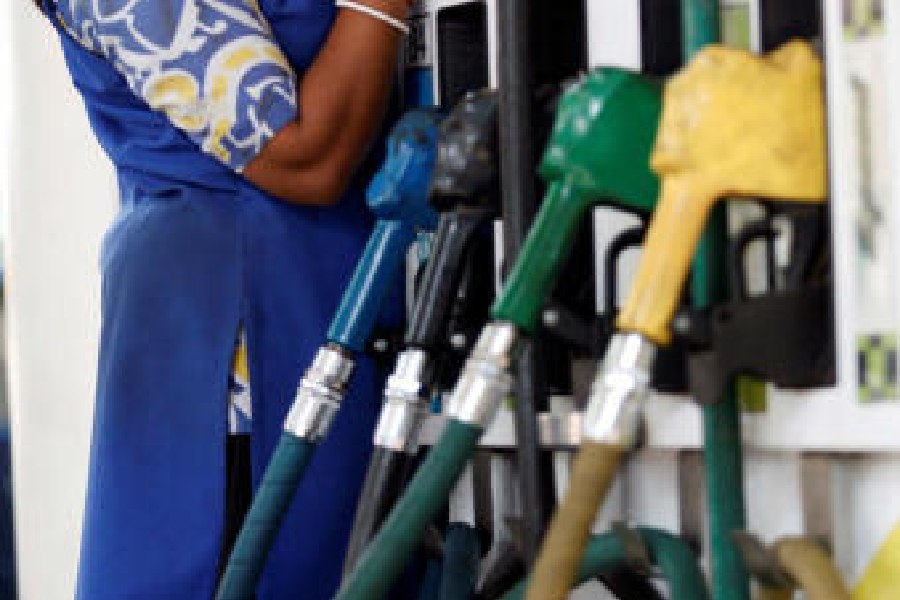Petrol and diesel prices were cut by Rs 2 a litre each after a gap of almost two years and just days ahead of the Lok Sabha poll date announcement. The new rates take effect from 6am Friday.
Buyers in Calcutta will pay Rs 103.94 for a litre of petrol and Rs 90.76 for diesel.
With the upcoming general elections, consumers were looking forward to a reduction in petrol and diesel prices after the Modi government cut the price of non-subsidised LPG by Rs 100 per cylinder. The subsidy for the beneficiaries of Pradhan Mantri Ujjwala Yojana was also increased to Rs 300 per cylinder.
Oil minister Hardeep Singh Puri had last week said the government has foregone around Rs 2.2 lakh crore of revenue because of cuts in excise duty on petrol and diesel announced between November 2021 and May 2022.
“Excise duty on petrol and diesel was cut by Rs 13 a litre and Rs 16, respectively, between November 2021 and May 2022. Revenue foregone as a result of the cuts was Rs 2.2 lakh crore,” he said.
India depends on imports to meet over 85 per cent of its crude oil requirements.
According to PPAC data, India’s crude oil and products import bill for 2023-24 is estimated at $115.69 billion, which is likely to double in the next 15 years. The average price of the Indian basket of crude for April–January was $82.4 per barrel, which is lower than the $96 average price in the first 10 months of 2022-2023.
International oil prices have been turbulent in the last couple of years. It swung wildly in 2022 — climbing to a 14-year high of nearly $140 per barrel in March 2022 after Russia invaded Ukraine, before sliding on weaker demand from top importer China and worries of an economic contraction.
But the spike meant adding to already elevated levels of inflation and derailing the economic recovery from the pandemic. So, the three state-owned fuel retailers froze petrol and diesel prices for the longest duration in the last two decades.
They stopped daily price revision in early November 2021 when rates across the country hit an all-time high, prompting the government to roll back a part of the excise duty hike it had effected during the pandemic to take advantage of low oil prices.











